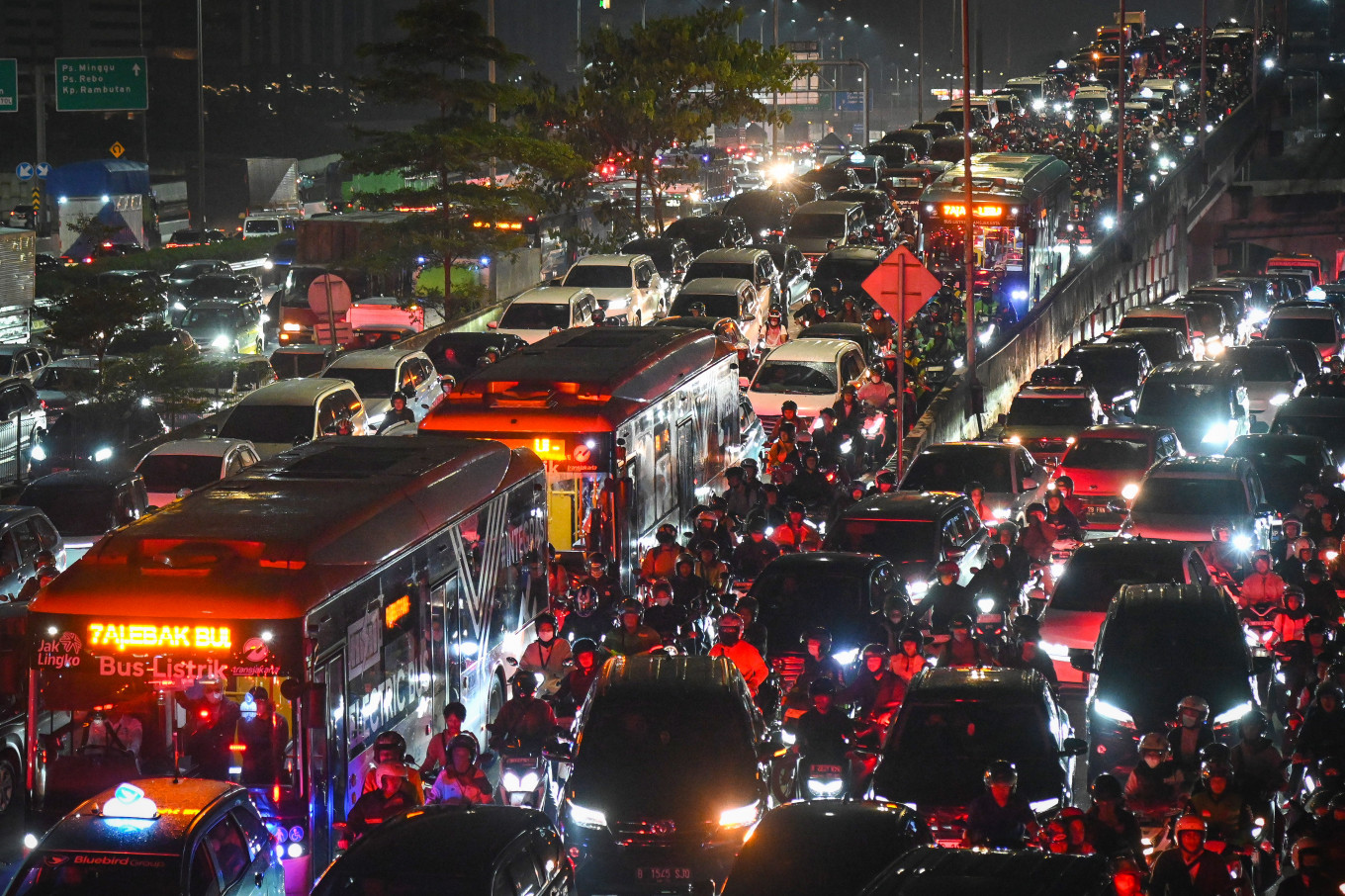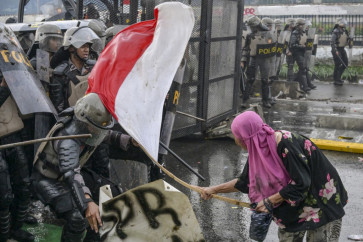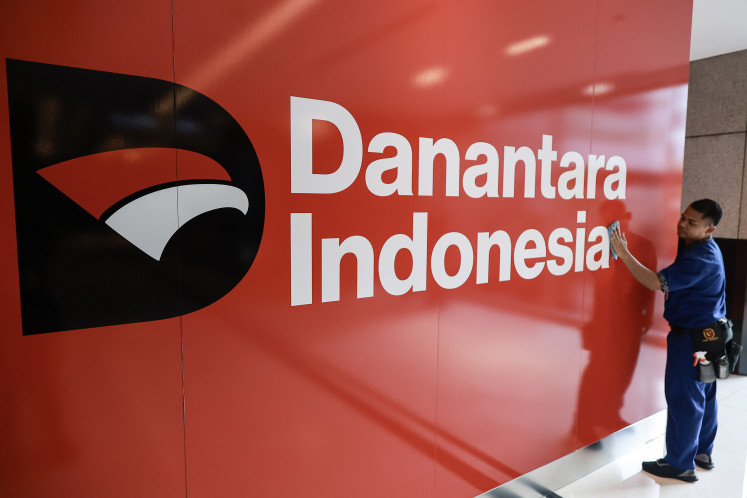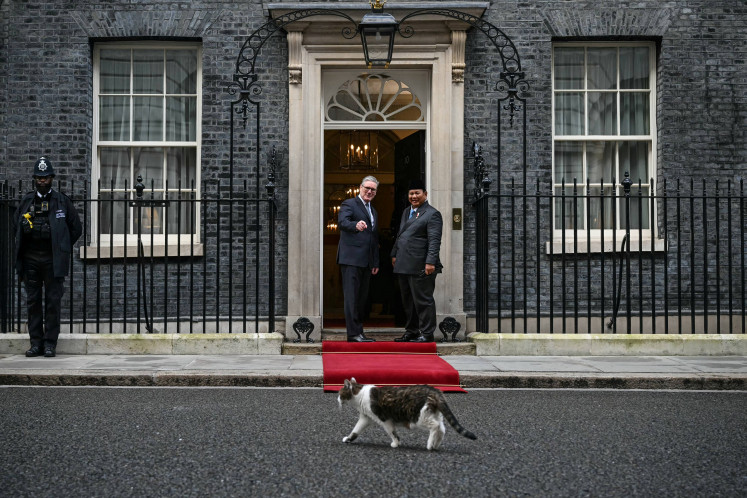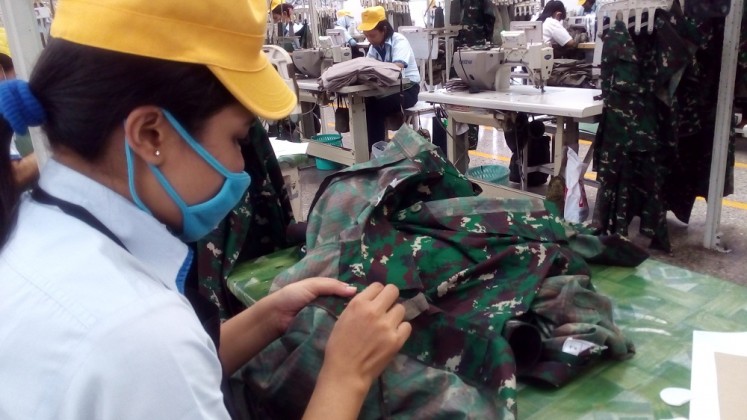Popular Reads
Top Results
Can't find what you're looking for?
View all search resultsPopular Reads
Top Results
Can't find what you're looking for?
View all search resultsNo shortcuts for traffic jams
Jakarta's ambition to stand equal with the world’s major cities is being undermined by the absence of a comprehensive traffic plan and persistent policy inconsistencies.
Change text size
Gift Premium Articles
to Anyone
“What does TB stand for in Jl. TB Simatupang?” is a set-up for a variety of jokes that have been widely circulating on Jakartans’ social media timelines in the past few months. More often than not, the joke will be accompanied by a short video of long columns of cars on the east-west corridor in South Jakarta. The video may as well be a picture, because the vehicles barely move.
That image is a foreshadowing for one of the joke’s more popular punchlines: “The TB stands for Tidak Bergerak (not moving)”. The road has long been notorious for gridlock, particularly during rush hour, but the situation has taken a turn to worse in recent months by a water pipe installation project that has reduced lanes.
Obviously, frustrated Jakartans have no ill intent against the road’s namesake. Tahi Bonar Simatupang is a national hero, he was a decorated soldier who served as the chief of staff of the armed forces during the war of independence and a globally renowned ecumenical leader.
Like many Indonesians, Jakartans often resort to humor and comedy to cope with the struggles of living in the country. But making light of the situation is not what residents want from the city administration when it is challenged by problems.
Unfortunately, that was exactly what the Jakarta administration did.
To ease traffic, Governor Pramono Anung earlier instructed his administration to take short-term measures, including repurposing sidewalks at bottleneck points to widen road space.
Unsurprisingly the plan drew sharp opposition from the citizens, with pedestrian advocacy groups said trimming the sidewalks ignores social justice and runs counter to a commitment to sustainable transport and equal access and called the plan a setback for Jakarta’s decades-long push to build sustainable urban mobility.
Pramono wrote himself into another, older online joke. “One more lane bro” is a popular netizen catchphrase used to denounce public infrastructure policies that prioritize low-impact highway over public transport expansions.
Critics urged Pramono to better assess resident’s actual needs and to refrain from making knee-jerk stop-gap policies in response to viral social media discourse. Following protests, the plan was later scrapped, highlighting the public’s resistance to policies seen as prioritizing cars over pedestrians.
We stand with experts and Jakartans in warning that the metropolis’ ambition to stand equal with the world’s major cities is being undermined by the absence of a comprehensive traffic plan and the persistent policy inconsistencies.
The sidewalk misstep has fueled recent renewed calls for a long-term solution to the city’s notorious chronic congestion.
Bylaw No. 5/2014 on transportation mandating 60 percent public transportation use by 2030 and an average traffic speed of 35 kilometers per hour. According to the Jakarta City Council, public transport use currently stands at 22 percent, just over a third of the target, while average traffic speed clocks in at 17 kph, a hair beneath half the target.
We are tired of being stressed by the streets. According to the 2024 Global Traffic Scorecard, the city’s 11 million residents spend an average of 89 hours in traffic each year, which has ranked the capital seventh among the world’s most congested cities.
Another index states it takes 25 minutes to travel just 10 km in the city, with rush hour delays stretching this by an extra eight minutes.
Jakarta Deputy Governor Rano Karno recently estimated the city loses Rp 100 trillion (US$6 billion) annually due to congestion, and yet he floated the uninspired idea of building multilevel junctions. They haven’t worked many times before, surely the next one will?
We don’t need to remind the administration of the ever growing body of evidence that although costly, urban transit investments can provide important benefits for commuters, including reduced congestion, improve air quality and increase public transit ridership.
Residents and visitors alike can make fun of Jakarta’s traffic congestion, but the problem is no joke. We need policymakers who stay true to urban mobility that is beneficial for the masses.

